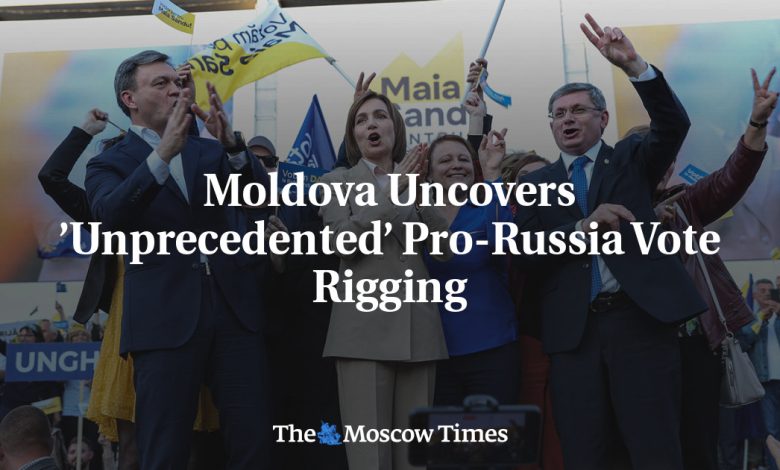Moldova Uncovers ’Unprecedented’ Pro-Russia Vote Rigging

Moldovan police carried out dozens of raids Thursday after discovering that at least $15 million was transferred from Russia to Moldovan citizens in an “unprecedented” effort to tamper with presidential elections this month.
Moldova’s pro-European President Maia Sandu, who is seeking a second term, has repeatedly accused Russia of political interference in the country, which lies between war-torn Ukraine and EU member Romania.
A total of $15 million was transferred from Russia to Moldovan citizens in September alone, police chief Viorel Cernauteanu said at a press conference.
More than 100,000 people with the right to vote were thought to be involved in the vote-buying scheme, Cernauteanu said.
Police raided 25 locations over what he called an “unprecedented” and “large-scale phenomenon… to disrupt the electoral process.”
The money was funneled into the country of 2.6 million by people affiliated with Ilan Shor, a fugitive businessman and former politician, police said.
People affiliated with his “criminal organization” recruited 70,000 sympathizers to cast their ballots for a specific candidate in exchange for money. Voters were also told to reject joining the European Union in a referendum set for October 20, the same day as the presidential elections.
Shor, who was convicted of fraud in absentia last year, said in a Telegram post that “all payments are legal.” “Moldova has finally turned into a police state,” he added, calling on supporters to “continue the fight together”.
In April, Shor announced, from Moscow, the creation of a political coalition called “Victory” with other pro-Russian activists.
However, the Moldovan electoral commission refused to register the Victory bloc for the presidential elections and referendum, citing several non-compliance issues.
Moldovan police also seized about $1 million of what they called “illegal political financing” from people returning from the April gathering.
In June, the United States, Britain and Canada warned of a Russian “plot” to influence Moldova’s presidential elections and “incite protests” if a pro-Russian candidate failed to win.

